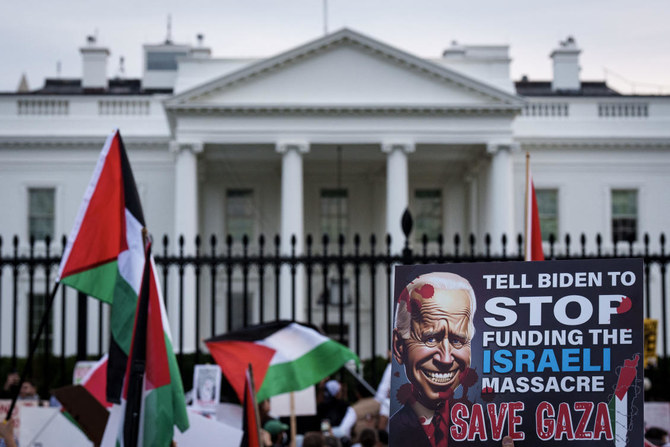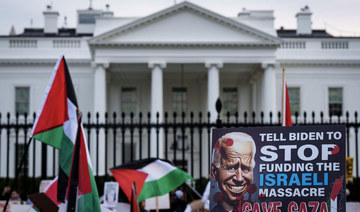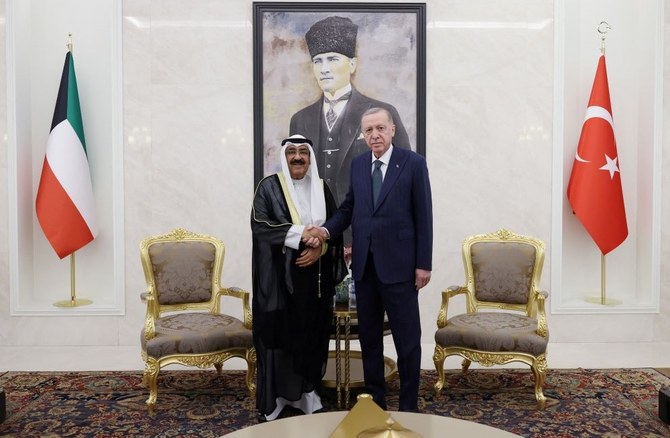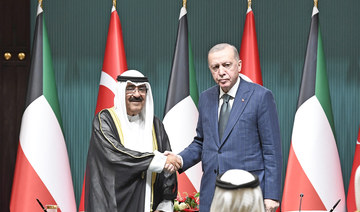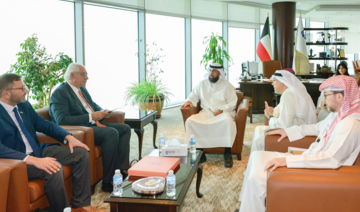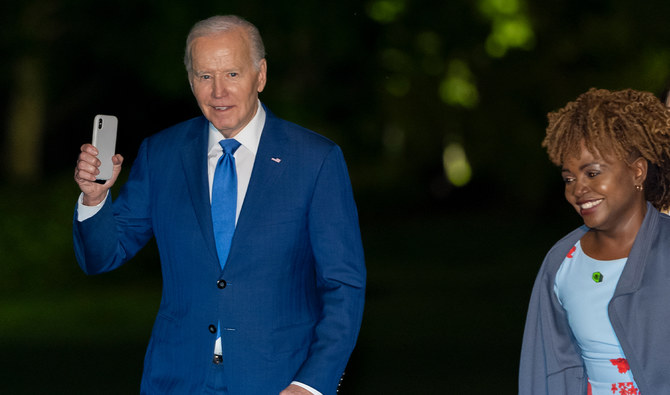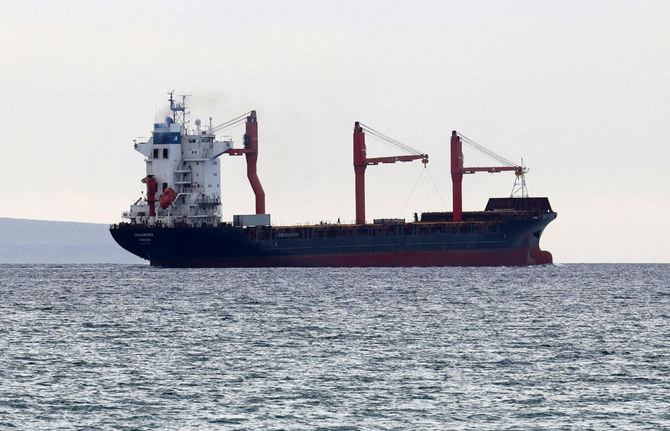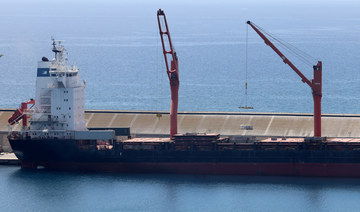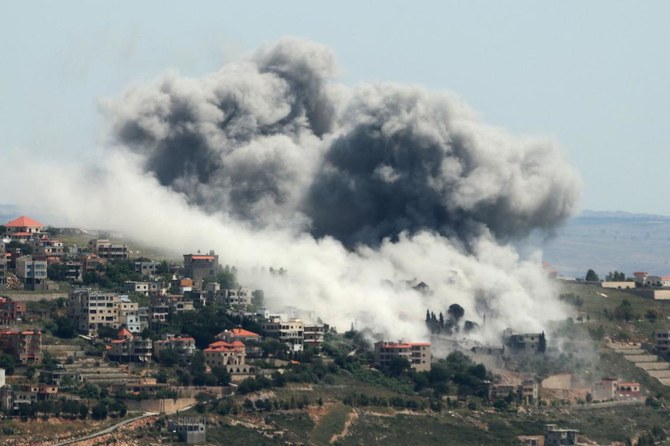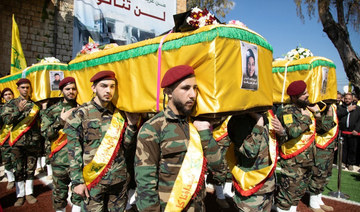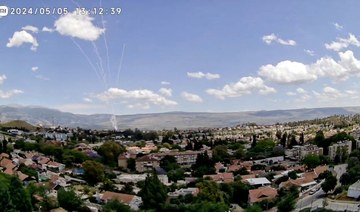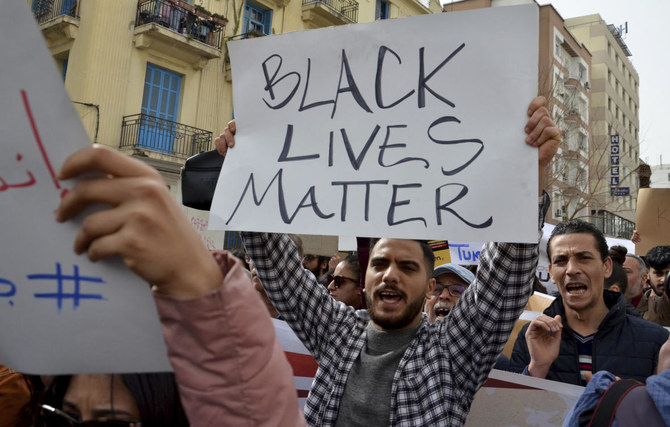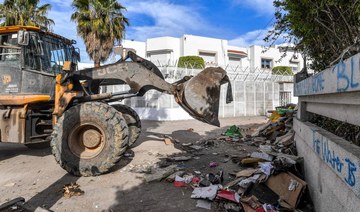WILMINGTON: US President Joe Biden told Prime Minister Benjamin Netanyahu on Sunday that Israel should not proceed with a military operation in Rafah without a plan to ensure the safety of the roughly 1 million people sheltering there, the White House said.
Biden’s call with Netanyahu happened days after the US leader told reporters that Israel’s military response in the Gaza Strip was “over the top,” reflecting growing concern and frustration over the rising death toll of civilians in the Palestinian enclave.
The US president reaffirmed the shared goal of seeing Hamas defeated and ensuring the long-term security of Israel, but also called for “urgent and specific steps” to increase the throughput and consistency of humanitarian aid to Palestinian civilians trapped in Gaza, the White House said in a statement.
Aid agencies say an assault on Rafah, located in the southern part of Gaza on the border with Egypt, would be catastrophic. Israel’s military ordered civilians to flee south before previous assaults on Gaza’s cities, but now there is no obvious place to go and aid agencies have said many people could die.
Biden “reaffirmed his view that a military operation in Rafah should not proceed without a credible and executable plan for ensuring the safety of and support for the more than one million people sheltering there,” the White House said.
The two leaders also discussed ongoing efforts to secure the release of all remaining hostages taken by Hamas during the Islamist militant group’s Oct. 7 attack on Israel, the White House said.
“The President emphasized the need to capitalize on progress made in the negotiations to secure the release of all hostages as soon as possible,” the White House said.
It added that Biden and Netanyahu agreed to remain in close contact.
Hamas-run Aqsa Television on Sunday quoted a senior Hamas leader as saying that any Israeli ground offensive in Rafah will “blow up” the hostage-exchange negotiations.
Netanyahu’s office has said it had ordered the military to develop a plan to evacuate Rafah and destroy four Hamas battalions it says are deployed there.
’OVER THE TOP’
Biden and Netanyahu spoke on Sunday for the first time since the US president told reporters on Thursday that Israel’s military response to Hamas had been “over the top,” his most critical comments on a war that has now killed more than 28,000 Palestinians.
The president, who is spending the weekend at his home in Wilmington, Delaware, spoke with Netanyahu on Sunday morning, a White House official said.
The Israeli prime minister told the “Fox News Sunday” program earlier on Sunday that he had not talked with Biden since his “over the top” comment and did not know what the US leader meant by it.
Asked in an interview with ABC’s “This Week” program aired on Sunday how many Israeli hostages held in Gaza are still alive,
Netanyahu said
“enough to warrant the kind of efforts that we’re doing.”
Health authorities in Gaza, which is controlled by Hamas, estimate more than 28,000 Palestinians, mostly civilians, have been killed in the region since the conflict began in October.
Palestinian health authorities say around 70 percent of those who have been killed were women or children under 18. The World Health Organization has described the Palestinian Health Ministry system for reporting casualties as “very good” and UN agencies regularly cite its death toll figures.
Hamas gunmen killed 1,200 Israelis and took around 250 hostages back to Gaza in the October assault that triggered the conflict.



